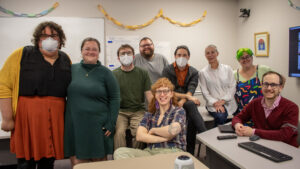
When Rabbi Alex Weissman applied to rabbinical school in 2011, he estimates that there were just a handful of rabbis working at social-justice organizations. Fast-forward a dozen years and that number now exceeds several dozen — too many for Weissman to name.
Why the dramatic shift? Many advocacy organizations now recognize the role that clergy can play in helping activists maintain spiritual and emotional health. (Burnout is all too common among people trying to fix a broken world.) Additionally, many progressive organizations have sought to reclaim the moral, prophetic voice, refusing to surrender the religious label to political and cultural conservatives, says Weissman.
“There is also a growing awareness of the liberatory potential of Torah — that Judaism and Torah are powerful, meaningful and guiding resources for movements,” says Weissman, a 2017 graduate from the Reconstructionist Rabbinical College who is now RRC’s director of mekhinah, and cultural and spiritual life. (The Mekhinah or preparatory year provides students with a base level of skills needed to thrive in rabbinical school.)
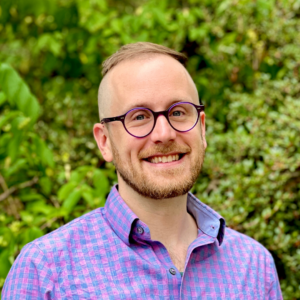
Then there are the priorities of Jews themselves. According to a report by the Pew Research Center titled “Jewish Americans in 2020,” some 59 percent of American Jews say that working for justice and equality in society is essential to the Jewish identity. If social justice is so important to so many Jews, then rabbis should be trained to empower them to pursue it, says Weissman.
For all those reasons, Weissman developed a new course at RRC — the only one of its kind at an American rabbinical school — called “Rabbis in Social Movements.” The class, offered for the first time in the fall of 2023, explores these trends, as well as the myriad roles that rabbis can play in movements for social change. Those include providing pastoral counseling to activists, incorporating rituals to imbue the work with even more meaning, and, yes, speaking with moral authority from a podium or through a megaphone.
The new class is part of a larger effort at RRC to further synchronize classroom learning with on-the-job rabbinic training, and better prepare rabbis to be effective in the world. As the instructor, he’s helping students think through questions like: How can I ground my work in sacred purpose? How do I balance my personal politics with the needs of the organization I’m serving? Can I do this if I can’t see myself galvanizing a rally? How does God speak to me in this work? How can I sustain others in this work? How can I sustain myself?
There’s no one answer to any of these questions, says Weissman, who brings years of community organizing experience; among his many roles, he served as director of organizing at T’ruah: the Rabbinic Call for Human Rights. (As an RRC student, he was mentored by Rabbi Mordechai Liebling, the noted activist who launched the college’s Social Justice Organizing Program and frequent contributor to Evolve: Groundbreaking Jewish Conversations.) That’s why he’s exposing students to many models and roles that rabbis can inhabit.
“Our tradition has a lot to say about how to structure society,” says Weissman. “This is a way to train our students to help to bring that project to life, as part of our own reconstruction of Jewish tradition.”
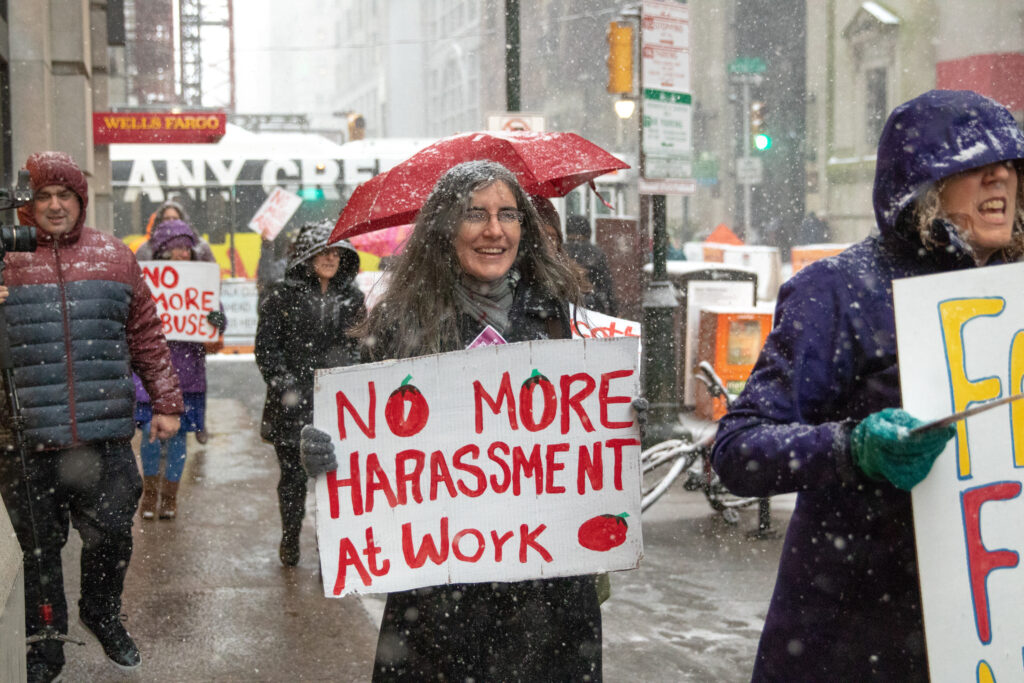
The course reflects the Reconstructionist movement’s history of bringing about a more ethical society. And there’s the movement’s expansive understanding of Jewish civilization. It’s the idea, first taught by Rabbi Mordecai Kaplan, that art, theater, food, comedy, and yes, social and political organizing, are as much a part of Jewish civilization as prayer and Torah study. (Check out an excerpt of the syllabus.)
The class was designed well before the horrific events of Oct. 7 in Israel or the war with Hamas that followed. While he didn’t rewrite the curriculum, he incorporated real-time events. One example: In mid-October, students analyzed statements on Oct. 7 put out by various organizations to gauge the way words were and were not serving the spiritual needs of a particular community. Additionally, students were asked to attend a demonstration or other event and observe a rally playing a crucial role.
“Maybe it’s a rally. Maybe it’s a space for healing and reflection. There are a lot of those opportunities right now. I’ve encouraged students to take this moment where rabbis are really in action, to witness and to learn and to think about what that means for their own rabbinates,” says Weissman.
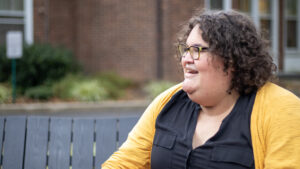
The 12 students enrolled in the course cited a range of reasons why they signed up for the elective. Some have always envisioned themselves working for a social movement while others wanted to explore a new area of the rabbinate. Since the class had just one prerequisite, enrolled students are at various points in their RRC journeys.
“I thought this class was a really great opportunity to integrate the work I’ve done as a community organizer and activist into my training for the rabbinate and my preparation to do more of this work as a rabbi,” says Josie Felt, a student in her third year who has engaged in social justice advocacy in the United States and Israel.
“Right now, the skill I’m looking to explore or gain wisdom from in this class is figuring out ways to keep myself spiritually sustained, to allow myself to stay present in tough moments,” she says.
Emma Fischer, a second-year student, says that classes like this help ensure that she’ll be prepared to serve today’s and tomorrow’s Jewish community in a relevant fashion.
“When you are working in the context of a movement, you get to meet people who maybe would never set foot in a synagogue,” says Fischer. “I think that method of connecting with people will grow in importance as American Jews move away from the synagogue model of Jewish life.”
She also sees the class as an avenue towards making her own rabbinate an expression of her full self.
“I am someone who’s deeply religious, and my deep religious commitment informs my pulpit, informs my politics, and I happen to exist on the left-hand side of the political spectrum,” she says. “And for a very long time, the narrative of this country was if you were religious, you were part of the religious right.”
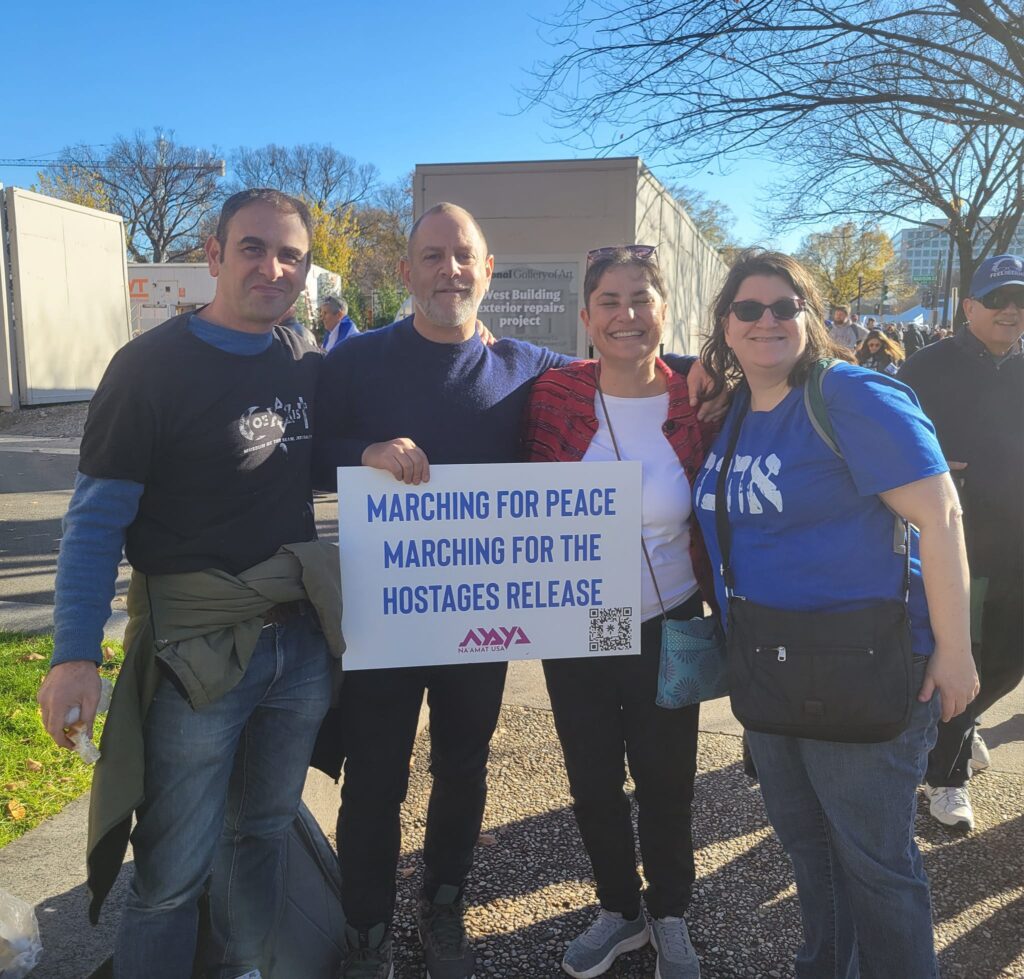
Lesley Pearl, a fourth-year student at the Reconstructionist Rabbinical College, enrolled at the same time she interned with March on Harrisburg, an organization founded by an RRC graduate that champions legislative transparency. The combination has proved a true synergy between classroom study and learning in the field.
One takeaway for Pearl: Many of the skills she’s developed in other areas of the rabbinate can be useful for a social movement, though the purpose may change. For instance, instead of bringing people together for a Shabbat meal, she could use those same networking skills to convene an advocacy action.
“I have never done organizing work before, and I really wanted to learn how. I think it is important that I know how to serve people who also want to bring their feelings into action,” says Pearl. “I’m at the point in my rabbinical school career where I’ve done a lot of foundational text work. It’s exciting to be able to lean move heavily into practical rabbinic work.”
Read more about Rabbi Alex Weissman here.





